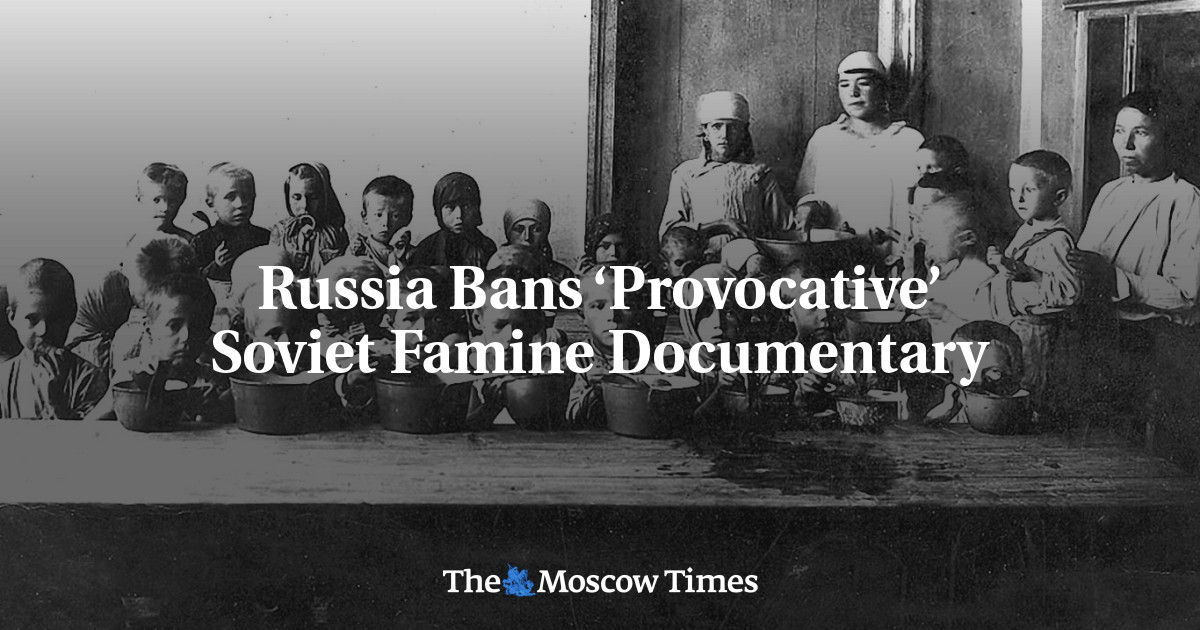
Russia has banned the screening of a documentary on the Soviet famine that drove civilians into cannibalism and killed an estimated 5 million people, saying the film’s “provocative and shocking” content could cause public outrage.
“Famine” tells the story of the 1921-23 Povolzhye famine in Russia’s Volga-Ural region that sparked an outpouring of international aid, primarily from the United States and Europe.
“The famine of the ‘20s was one of the first symbols of the international struggle for life,” say the film’s creators, screenwriter Alexander Arkhangelsky, director Tatiana Sorokina and journalist Maxim Kurnikov.
Russia’s Culture Ministry said it pulled “Famine’s” screening license “due to numerous complaints from citizens,” according to a statement circulated by state media Monday.
“Citizens point to provocative and shocking audiovisual information contained [in ‘Famine’]. All of this, according to viewers, can cause a strong negative reaction in society,” it was quoted as saying.
The Kommersant business daily said it obtained a copy of the ministry’s letter to Sorokina, which cited the distribution of unspecified information that is banned in Russia for its decision to revoke “Famine’s” screening license.
Kurnikov disputed the decision, telling Kommersant: “There’s nothing illegal in this movie. It is legally irreproachable.”
He noted that police officers, who also cited citizens’ complaints, had frequently summoned the crew for questioning during the filming process.
“Famine’s” authors raised funds for their documentary via a Russian crowdfunding platform.
The Culture Ministry issued the screening license for “Famine” on Sept. 30.
Arkhangelsky said “Famine” will be screened in museums and universities instead of movie theaters and may be released on YouTube later this year.
Lawyers interviewed by Kommersant noted that authorities have revoked an increasing number of documentaries and historical movies in the past five years amid growing tensions between Russia and the West.
Leave a Reply